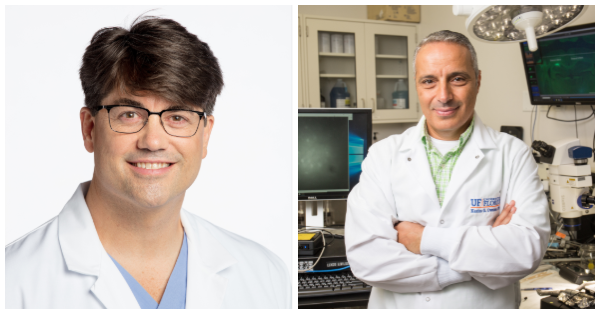
University of Florida neuroscientists will test the effectiveness of a new motion-activated type of deep brain stimulation aimed at improving treatment for patients with severe essential tremor, a neurological disorder that causes involuntary shaking and usually worsens over time.
Current DBS therapies for patients with severe essential tremor are continuous, or always on, which can sometimes lead to undesirable side effects, including stuttering and problems with walking and balance. Under a new $3.9 million NIH grant, co-principal investigators Karim Oweiss, Ph.D., and Kelly Foote, M.D., will test responsive deep brain stimulation, or R-DBS, in a Phase I clinical trial involving approximately 10 patients over the next five years. R-DBS only turns on when it detects movements associated with essential tremor.
Oweiss, a professor of electrical and computer engineering, biomedical engineering and neuroscience, and Foote, a professor of neurosurgery and co-director of the Norman Fixel Institute for Neurological Diseases at UF Health, seek to determine whether R-DBS could mitigate symptoms with fewer side effects while also prolonging the device’s battery.

